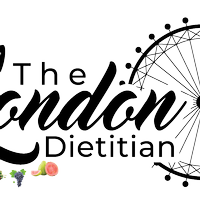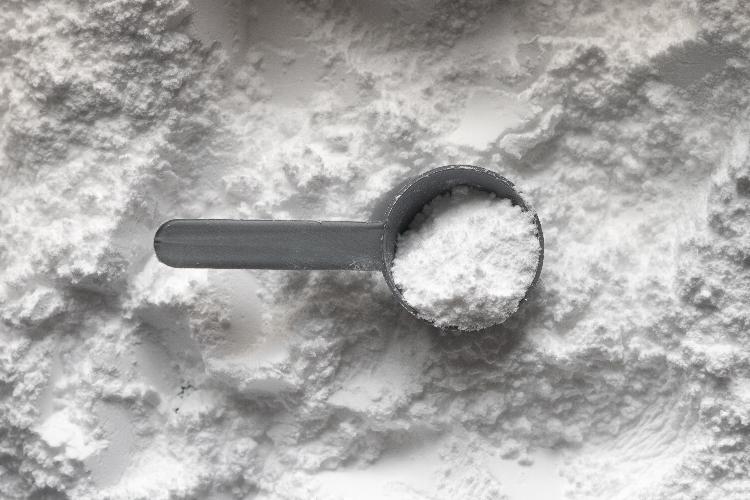One of the most popular supplements (if not the MOST popular) in the PCOS space is inositol. This article will discuss what inositol is, the potential benefits of its use and how you should be taking it. Let's get started.
What is inositol?
Inositol is a vitamin-like naturally occurring molecule that is produced in the human body but also found in nuts, fruit, wholegrains and beans. There are 9 different forms of inositol but the most well-studied forms are myo-inositol (MCI) and d-chiro inositol (DCI).
How does inositol work?
Whenever we eat carbohydrate, (think starchy foods such as pasta, rice, noodles, potato bread or simple carbs such as fruit, sweet-tasting foods, honey etc), they get broken down into glucose. This glucose is then absorbed into the bloodstream and needs to enter our cells in order to fuel us with energy. The pancreas detects the rising levels of glucose in the blood stream and releases insulin which acts as a key to ‘unlock' the cell door. As soon as the insulin ‘unlocks' the cell door, a signal is sent to the middle of the cell (I like to refer to it as the cell headquarters) to inform the headquarters that it is now time to fuel the cell by allowing glucose admission.
However, as is common in PCOS, the cells are often insulin resistant, which means that the lock does not recognise this insulin ‘key'. More insulin then needs to be released in order to overwhelm the door and kick it wide open. This is known as insulin resistance which is responsible for a myriad of common PCOS symptoms such as cravings, weight gain, fertility problems, fatigue and mood swings.
And this is one area in which inositol helps; it essentially acts as a second lock on the cell door, allowing the insulin to unlock the door and deliver the nutrients that the cell needs. In essence, the cell is now more receptive to insulin, meaning that blood sugars remain within a stable range, reducing the need for the pancreas to release extra insulin.
However, the benefits of inositol are not just limited to improving cell sensitivity to insulin. Here are some more ways that inositol can help improve your PCOS symptoms:
Improving fertility
High levels of insulin cause an imbalance in the sex hormones that trigger ovulation. Inositol can help with balancing these hormones and so restores regularity of the menstrual cycle. More regular cycles= regular ovulation. More regular ovulation means that you have more chances of getting pregnant throughout the year.
Reduces levels of testosterone
Sex hormone-binding globulin (SHBG) is a protein responsible for controlling the amount of testosterone that is available for use in your body. In PCOS, SHBG levels are often low, meaning that there is more circulating testosterone around the body. Having more testosterone in the bloodstream means that you are more likely to get symptoms such as acne, excess hair growth on the body, hair thinning from the bed and fertility problems.
Studies have shown that supplementation with inositol for 6 months has the potential to significantly increase SHBG, leading to a reduction in testosterone levels.
Which form is better?
Now, you may have been reading online about ovasitol and that a blend of MCI and DCI at a ratio of 40:1 is required for best results. However, the blended form is often more expensive and in recent years, studies have been carried out using MCI alone which have shown significant benefits without the use of DCI- this mixed blend is often more expensive. There does not appear to be any harm in either taking the MCI alone or the blend. However, DCI should never be taken alone as studies have shown that this can negatively affect egg quality and ovarian response.
How should inositol be taken?
Since multiple studies have now shown that MCI is just as effective as the blend (without the added expense), if I feel that inositol is warranted, I recommend a dosage of 2-4g/d for my clients. In order to see any benefit, it must be taken for a minimum of 3-6 months daily.
Unfortunately, inositol is not effective for everyone- if you have fixed your diet and are taking inositol for at least 6 months but have not noticed any benefit, then this is where it may be worth considering alternative supplements. Look out for future blog posts where I will be discussing these at length.
Bottom line? MCI is a safe supplement to take if wanting to try and improve PCOS supplements, As always, this should be taken once the diet foundations have been optimised. Trying to supplement without fixing your diet first will likely lead to suboptimal results.
Disclaimer: As with any dietary supplement, it is important to discuss the use of all medications, vitamins and supplements with your healthcare team.
If you are struggling with unwanted hair, constant fatigue, uncontrollable cravings and weight that is just not shifting, then you probably do have underlying insulin resistance which can be corrected with the correct nutrition and supplement plan. Click on this link to book a FREE strategy call and I'll put together a step-by-step plan to help you reverse your symptoms once and for all.

